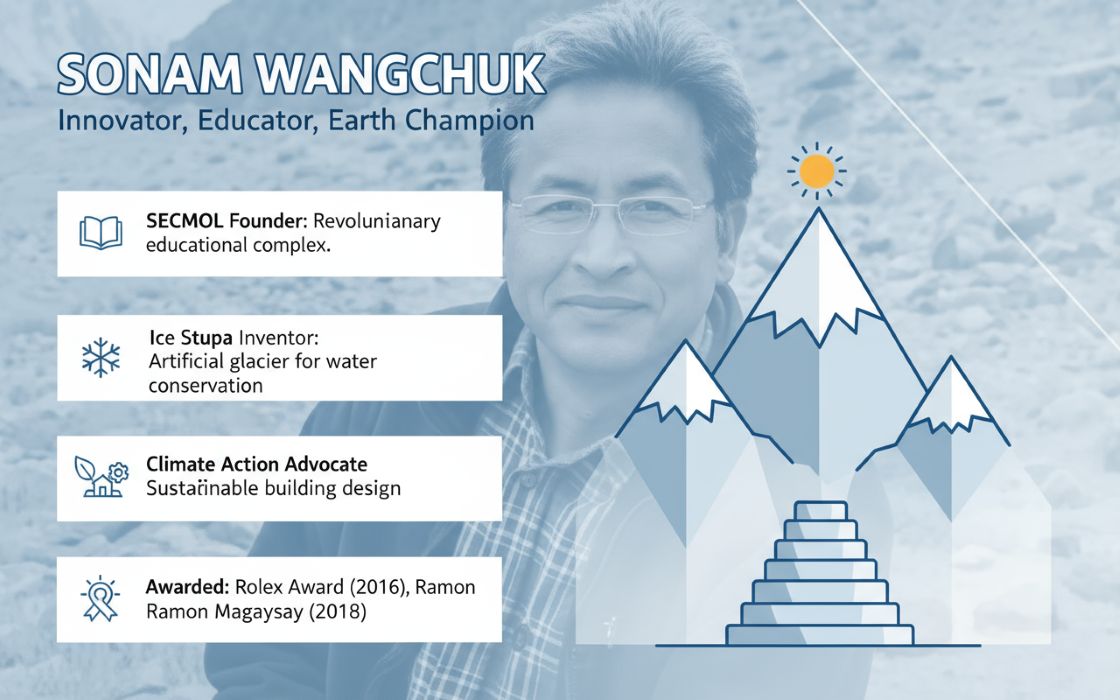In an age where climate volatility and food insecurity pose existential threats, the agriculture sector finds itself at a critical juncture. At the Climate Action & Sustainability Conference & Awards (CASCA’25), organized by TheCSRUniverse, presented by M3M Foundation and powered by YBRANT, a panel titled “Regenerative Agriculture: Scaling Sustainable Farming for Food Security & Climate Resilience” brought together eminent voices from philanthropy, thought leaders, practitioners, corporate CSR, and grassroots implementation. Moderated by Mr. Mayank Gandhi, Founder of Global Vikas Trust, the discussion explored how India's farming practices must evolve—beyond top-down interventions—to embrace community-led, climate-smart strategies that are both sustainable and scalable.
A Call for Long-Term Vision
Mr. Mayank Gandhi, set the session tone with a challenge: to move beyond short-term thinking and embrace a community-first, long-term approach to farming. Mr. Gandhi’s opening remarks underscored the complexity and multidimensional nature of agricultural transformation, urging corporates to commit to the harder, more impactful path of empowerment rather than quick fixes. 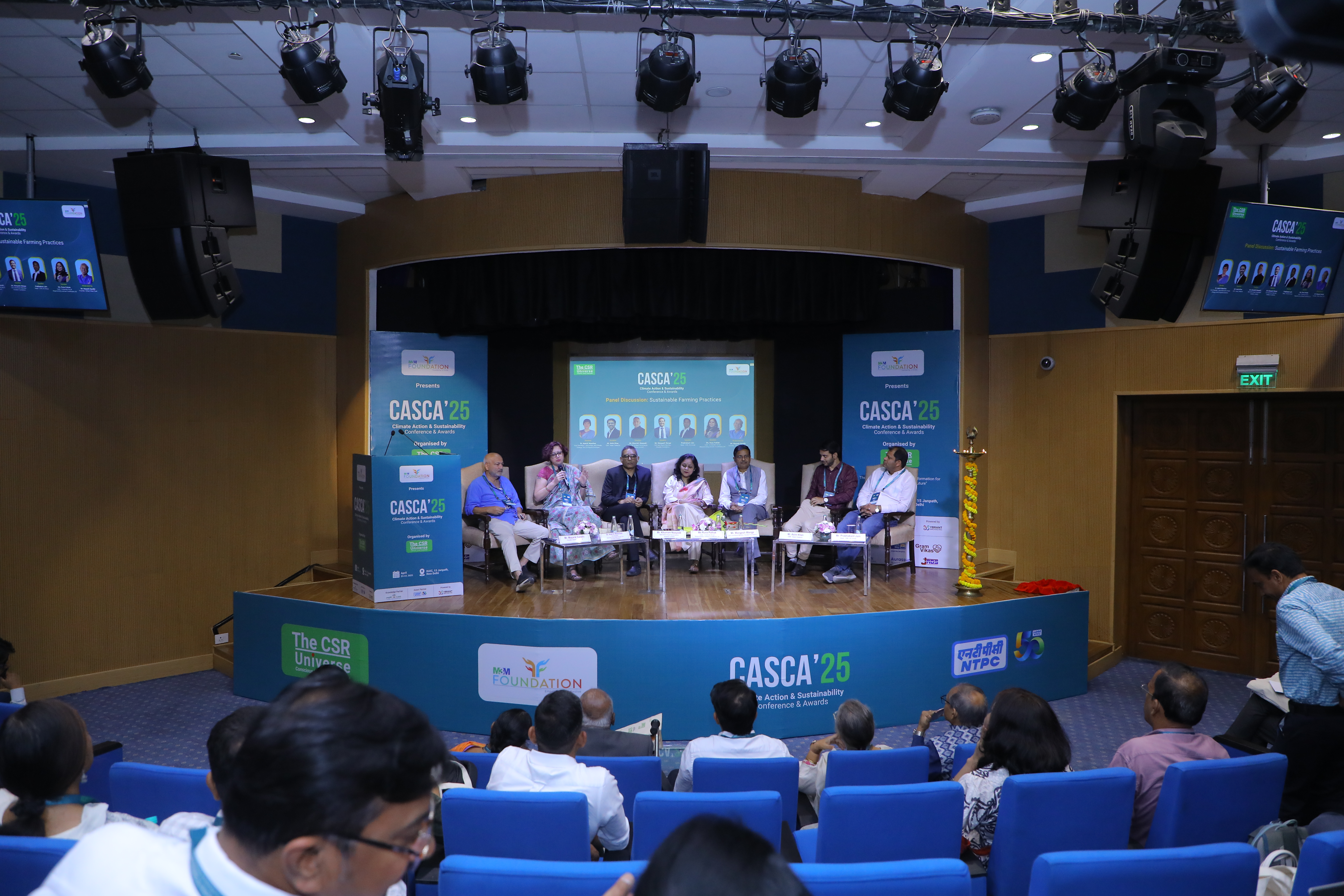
Dr. Aakriti Wanchoo, Vice President – Agriculture and Climate Change at Iora Ecological Solutions, echoed this sentiment by critiquing the limitations of conventional project cycles. “The three- to five-year funding cycles no longer work,” she asserted. She highlighted how time-bound initiatives often falter once external support withdraws, leaving communities vulnerable. Dr. Wanchoo called for a mindset shift toward long-term community engagement, where organizations transition from transactional to transformational relationships. “The climate crisis isn’t created by these communities, yet they bear the brunt. We must stand by them for the long haul,” she emphasized, advocating for project models that prioritize community agency and sustained impact.
Water as an Economic Driver
Mr. Prabhakar Jain, Head of CSR at DS Group, introduced the concept of Water Economic Zones—an innovative model inspired by Special Economic Zones but centered on water as a community asset. Jain explained that DS Group’s approach was not rigid; rather, it evolved organically through continuous stakeholder engagement. Their framework is built on four pillars:
- Water conservation and management
- Agri-based livelihoods through crop diversification
- Improved agricultural practices
- Institution building and market linkages
These pillars are implemented across seven locations, each tailored to the unique needs and complexities of the region. Mr. Jain’s message was clear: replicable models must respect local context to be truly effective.
The Swades Way: Engage, Empower, Execute, Exit
Mr. Mangesh Wange, CEO and Board Member of Swades Foundation, shared a proven, community-driven approach encapsulated in the “Four E Strategy”: Engage, Empower, Execute, and Exit. Swades Foundation worked in over 2,300 villages before consolidating to 800, focusing on participatory models where communities took the lead. Village Development Committees (VDCs), composed of volunteers—half of them women—were established to drive change, demonstrating their commitment before Swades scaled up its efforts. 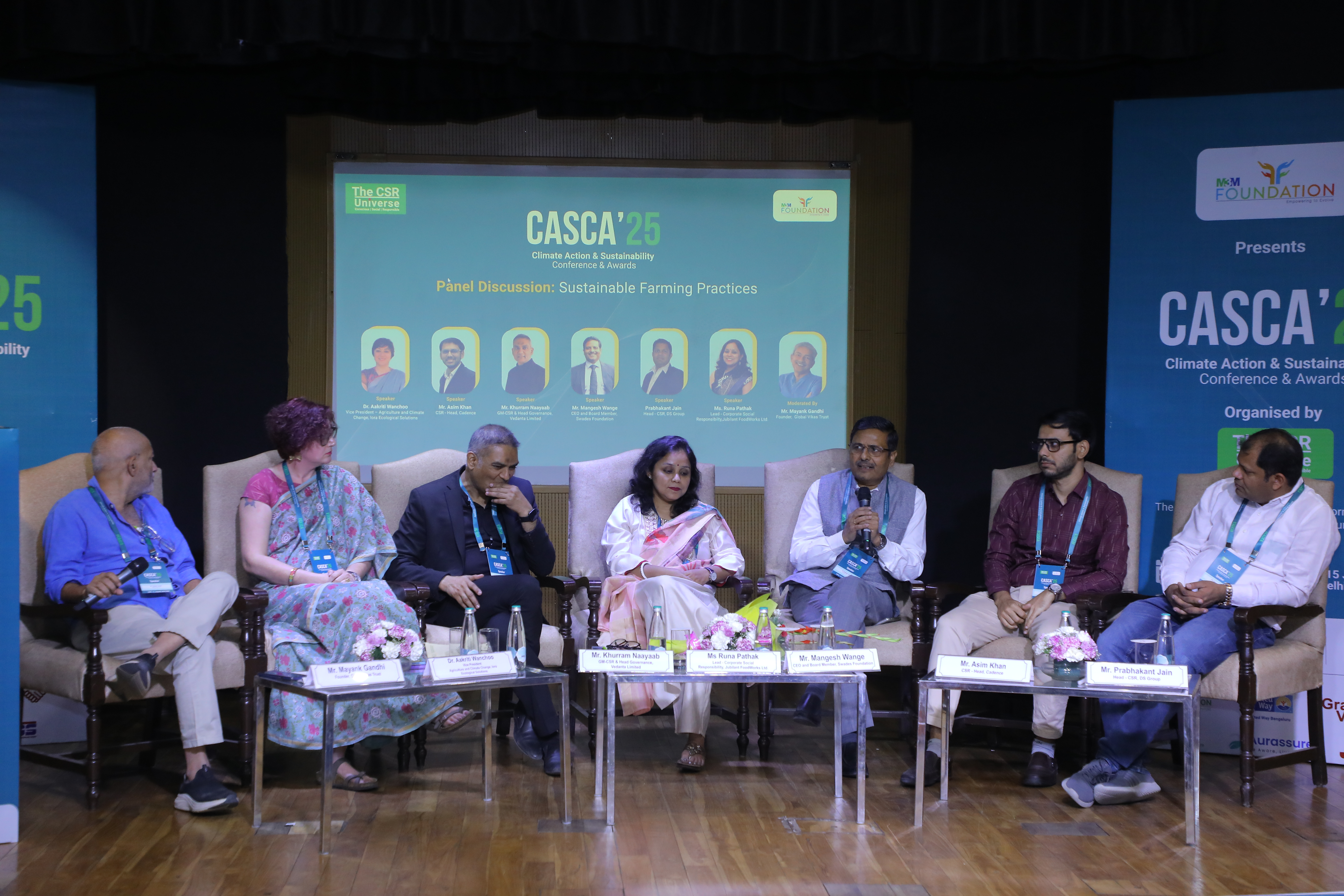
“Real sustainability comes when the community takes charge. We design the exit first,” Mr. Wange stressed, highlighting the foundation’s belief in self-reliance. The name ‘Swades’ itself—meaning ‘self-reliant nation’—reflects the vision of empowering villages to sustain progress independently.
Turning Deserts into Croplands
Mr. Khurram Naayaab, GM-CSR & Head of Governance at Vedanta Limited, recounted a remarkable transformation in Barmer, Rajasthan, where extreme temperatures and water scarcity made traditional farming nearly impossible. Vedanta identified 10,000 low-income farmers and introduced ‘Khadin’ farming—a traditional technique where fields are gently sloped to retain rainwater. By interconnecting farmlands and enhancing water percolation, soil quality improved dramatically. Within three years, many farmers were cultivating two crops, and incomes rose by over 50%.
“It was a 9-day rainfall window in a year. We built a model that made every drop count,” Mr. Naayaab said, framing water conservation as the cornerstone of regenerative agriculture’s future.
Scaling Corporate Commitment 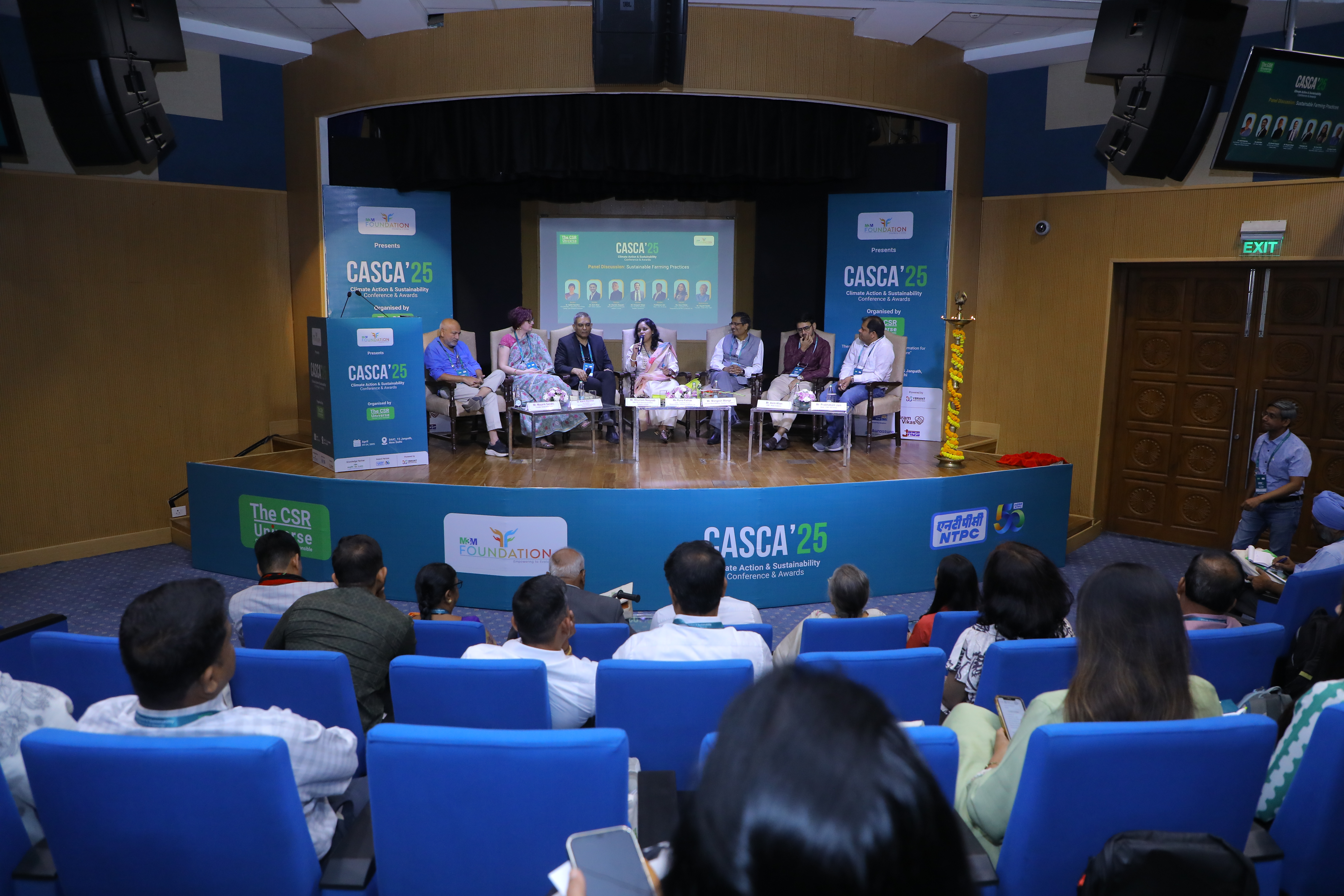
Ms. Runa Pathak, Lead – CSR at Jubilant FoodWorks, and Mr. Asim Khan, CSR Head at Cadence, brought valuable corporate perspectives to the conversation. Their presence reflected the growing commitment of responsible businesses to regenerative agriculture and climate resilience. Both organizations are championing sustainability by embedding long-term environmental thinking into their CSR strategies—demonstrating how corporate leadership can play a pivotal role in driving systemic change in India’s agricultural landscape.
The ‘Pond Full of Fish’ Philosophy
Returning to the moderator’s metaphor, Mr. Mayank Gandhi offered a powerful vision for sustainable development: “There are three ways to help: give fish, teach fishing, or create a pond full of fish.” The third option, he argued, is the most sustainable—empowering people to sustain themselves in the long run. Mr. Gandhi urged corporations to embrace the complexity and long-term nature of agricultural support, recognizing that real change begins on the farm.
Conclusion: Regenerating Not Just Land, But Livelihoods 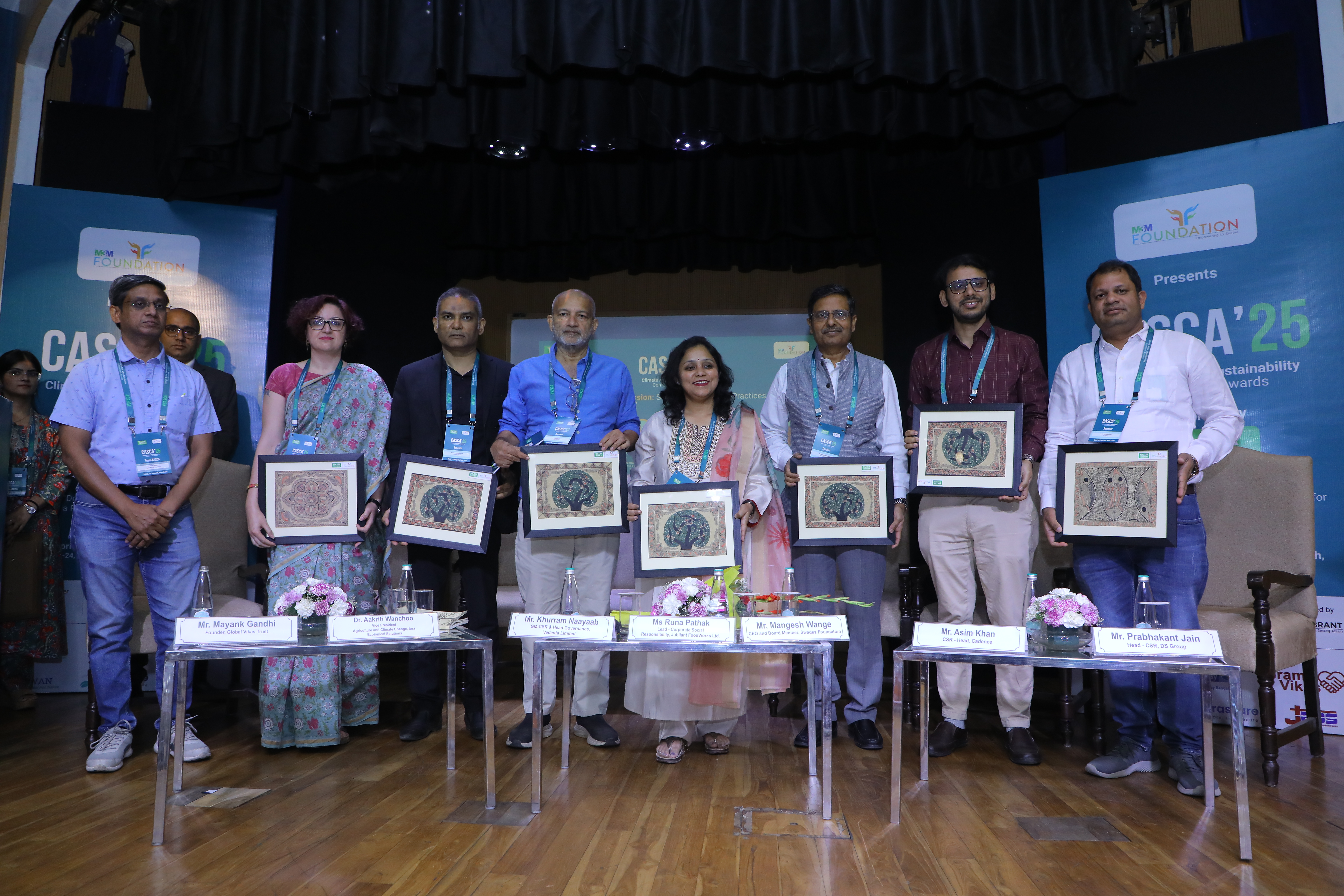
The CASCA’25 panel went beyond the technicalities of soil health and water management. It illuminated the socio-economic ecosystem that surrounds regenerative agriculture, reaffirming that lasting agricultural reform must be:
- Community-led: Empowering local stakeholders to drive change.
- Corporate-supported: Leveraging CSR and business resources for sustainable impact.
- Scientifically grounded: Integrating traditional knowledge with modern science.
- Locally contextualized: Tailoring solutions to regional needs and realities.
From check dams and khadins to water credits and volunteer-led village committees, regenerative agriculture is not just a buzzword—it is a blueprint for rural resilience and climate justice. As India faces the twin challenges of climate change and food insecurity, the lessons from CASCA’25 offer a roadmap for building a future where both the land and its people can thrive.










.jpg)

